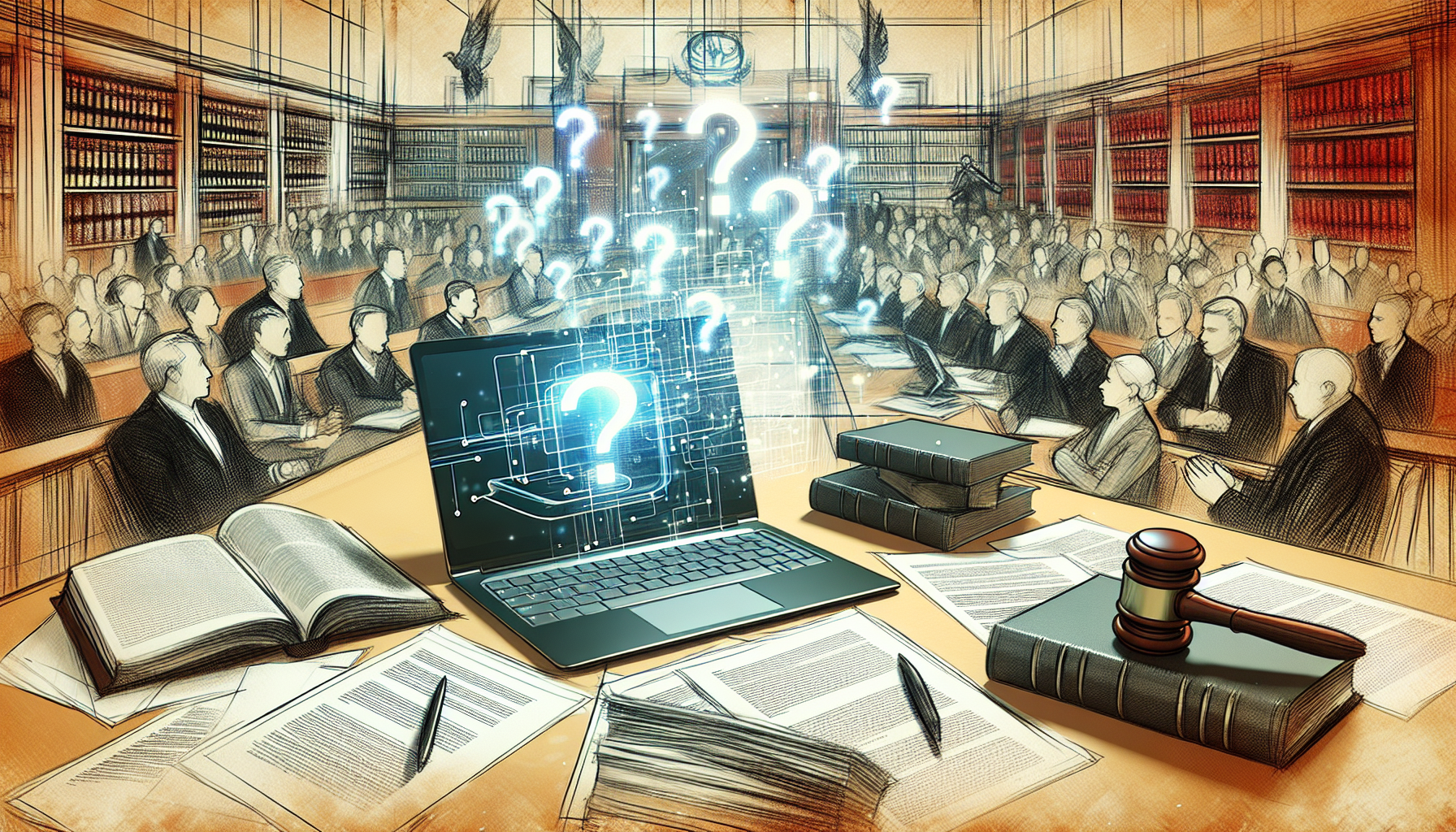
Unveiling the Potential: ChatGPT in Family Law Education
The legal field is continually evolving, making it essential to modernize educational materials. The integration of advanced technologies like ChatGPT can revolutionize how family law is taught and practiced. ChatGPT, developed by OpenAI, is a powerful language model capable of generating human-like responses, creating tailored educational content, and providing real-time consultations. Leveraging this technology can transform family law education by making information more accessible and comprehensible.
Streamlining Research: The Power of Precision Prompts
Effective legal research is the backbone of any law practice. Crafting precision prompts for ChatGPT can expedite this process significantly.
- Crafting Effective Prompts: The key to successful research lies in the formulation of effective queries. Clear and specific prompts enable ChatGPT to understand the exact requirements.
- Utilizing Specific Queries: By employing tailored prompts, lawyers can gather case laws and statutes efficiently. Consider a prompt like, “Provide a summary of landmark family law cases in 2022,” to focus the AI’s search.
- Examples of Nuanced Prompts:
- “List recent changes in state custody laws and their implications on joint custody agreements.”
- “Analyze trends in spousal support rulings over the last decade in California.”
With these techniques, family law practitioners can save valuable time, allowing them to focus more on client interactions and case strategy. Transitioning from research to client education materials, we explore how ChatGPT can simplify complex legal concepts for better understanding.
Also read:
Drafting With Expertise: Enhancing Client Education Materials
Client education is pivotal in family law practice. Leveraging ChatGPT can result in accurate and client-friendly educational content.
- Drafting Comprehensible Content: ChatGPT can create materials that demystify complex legal jargon, making laws and procedures more approachable for clients.
- Techniques for Simplifying Complex Concepts: Through simplification and clarification, lawyers can ensure clients fully understand their rights and obligations. Use prompts like, “Explain the process of filing for child custody in layman’s terms.”
- Sample Prompts:
- “Generate a FAQ addressing common concerns about divorce proceedings.”
- “Create a step-by-step guide on how to file for a restraining order.”
- “Draft a brochure detailing the benefits and limitations of prenuptial agreements.”
These educational materials can empower clients, fostering smoother and more informed interactions. Next, we delve into the potential of ChatGPT for creating immersive, interactive learning experiences.
Also read:
Interactive Learning: Creating Engaging Tutorials and Client Scenarios
Interactive learning can significantly enhance client understanding and preparation. Utilizing ChatGPT for creating engaging tutorials and client scenarios brings a practical aspect to family law education.
- Designing Interactive Scenarios: Lawyers can use ChatGPT to develop interactive client scenarios, enabling clients to better visualize legal processes.
- Role-playing Hypothetical Case Studies: Implementing hypothetical case studies through prompts such as, “Simulate a client consultation for a contested divorce case,” can provide a hands-on learning experience.
- Example Dialogues and Prompts: ChatGPT can generate dialogues and case simulations like:
- “Role-play a mediation session between divorcing parties with disputed child custody.”
- “Create a scenario of a client seeking advice on modifying a spousal support order.”
This integration not only aids in better client understanding but also prepares them for real-world interactions. Let’s now pivot to how ChatGPT can facilitate real-time consultations.
Also read:
Quick Consults: Real-Time Information at Your Fingertips
In the fast-paced realm of family law, real-time information can be critical. By using ChatGPT for instant clarification on family law queries, lawyers can provide timely, informed advice.
- Instant Clarification: ChatGPT can provide immediate answers to nuanced legal questions, like, “What are the grounds for obtaining emergency custody?”
- Ensuring Accuracy and Reliability: While ChatGPT offers quick responses, cross-referencing with verified sources ensures the information’s accuracy.
- Verification Tips: Always cross-check ChatGPT’s outputs with authoritative legal resources and databases to maintain reliability.
Harnessing this real-time consultation capability helps maintain high standards of client service. Streamlining efficiency through automation is the next critical area of focus.
Also read:
Taking Efficiency to New Heights: Automation & Routine Tasks
Automation of routine tasks is another transformative benefit of ChatGPT in family law practice.
- Automating Document Drafting: ChatGPT can auto-generate documents and templates, saving substantial time and effort. Prompts like, “Draft a standard child custody agreement template” can be immensely useful.
- Repetitive Queries Simplified: Routine queries can be automated, thereby enhancing productivity. Example prompts include:
- “Prepare a template for a spousal support modification request.”
- “Generate a letter format informing clients about court appearance schedules.”
- Integration within Workflow Tools: Embedding ChatGPT within workflow management systems optimizes daily operations, facilitating seamless task management.
While automation brings numerous benefits, ethical considerations remain paramount.
Also read:
Ethical Considerations: Practicing Caution and Due Diligence
Responsible usage of AI technology like ChatGPT necessitates cautious and ethical practice.
- Understanding Limitations: Recognize that ChatGPT has limitations and may not always provide flawless outputs. Human oversight is essential.
- Ensuring Confidentiality: It’s imperative to maintain client confidentiality and use ChatGPT in a manner that protects sensitive information.
- Framework for Human-AI Collaboration: Establish a clear framework where AI assists but final decisions and oversight remain with qualified humans.
These ethical safeguards ensure that the integration of AI enhances practice without compromising standards. Looking forward, we must embrace continuous learning to stay at the forefront of technology.
Also read:
Future Ready: Continuous Learning and Adaptation
Staying updated with advancements in AI is crucial for sustained success. Engaging in continuous learning ensures that legal practitioners remain adept at leveraging new technology effectively.
- Ongoing Learning: Participate in webinars, workshops, and courses focused on AI in law.
- Resources for Further Development: Numerous resources are available for legal professionals to enhance their understanding of AI’s evolving landscape, including publications, training programs, and online forums.
Embracing this proactive approach will ensure that the integration of AI in family law education is both effective and ethically sound, paving the way for innovative practices in the future.


